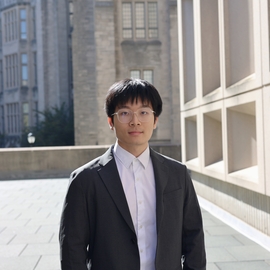Exploration of Timing and Higher-Energy Attacks on Quantum Random Access Memory
Yizhuo Tan, Chuanqi Xu, Jakub Szefer
October, 2024Abstract
This work presents the first evaluation of timing and higher-energy attacks on Quantum Random Access Memory (QRAM) circuits. By leveraging quantum principles, QRAM can efficiently store and manipulate both quantum and classical data, leading to potential significant speedups in a variety of quantum algorithms. However, as demonstrated in this work, when used in remote cloud-based quantum computers QRAM is vulnerable to different security attacks. The work demonstrates side-channel attacks, e.g., the timing attacks, as well as fault-injection-like attacks, e.g., the higher-energy attacks. This work evaluates the attacks on QRAM and different circuits that use QRAM. The work also proposes a set of defenses.
Publication
Proceedings of the 43rd IEEE/ACM International Conference on Computer-Aided Design (ICCAD)

Ph.D. Student
I am a PhD candidate at Yale University. My current research focuses on quantum computing and computer security, where I design novel attacks and defenses targeting quantum computers and quantum cloud providers. Specifically, my work explores security and privacy across the entire technology stack of quantum computers:
- Investigating vulnerabilities in quantum processors and qubit technologies.
- Developing secure and private quantum computer systems and architecture.
- Ensuring the security of quantum algorithms, with a focus on quantum machine learning (QML).
Previously, I worked on RTL design (Verilog) for FPGAs, implementing Post-Quantum Cryptography (PQC) that is secure to both classical and quantum computer attacks.
I am actively seeking roles as a research scientist, software engineer, and quant researcher. I am broadly interested in developing systems and infrastructure, especially for ML/GenAI infrastructure and systems.